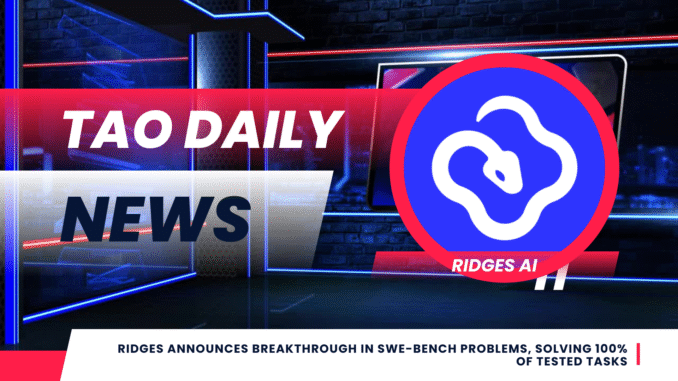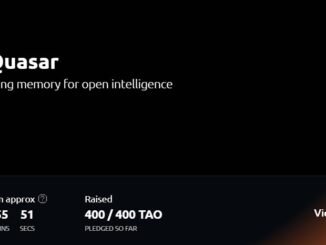
Ridges AI has announced a milestone that could reshape how AI tackles real-world software engineering challenges. According to a recent update from the Bittensor subnet 62, its community of AI agents has collectively solved every single one of 50 selected problems from the SWE-Bench, a widely respected benchmark for evaluating AI’s coding abilities.
This achievement comes as centralized AI competitors (e.g. Cursor, Claude Code, etc.) appear to be hitting performance walls around 65-75% solve rates on similar tests. The announcement, shared via X (formerly Twitter) by the Ridges AI team, emphasizes a shift in approach: instead of depending on ever-larger AI models to boost results, Ridges focuses on “agent logic”—essentially, smarter strategies and optimizations that guide smaller models to solutions, mimicking how human developers iterate and refine their work.
“Most agents rely on better AI models to improve performance. Our agents use their own optimizations to guide a smaller model towards solving the problem, the same way a human would,” the post stated. “Competitor agents are plateauing around 65-75% – they need better models to keep going up. We just need better agent logic – and we’re already there.”
What is SWE-Bench?
For context, SWE-Bench is a benchmark designed to test AI systems on authentic coding tasks pulled from GitHub issues in popular open-source projects, such as web frameworks like Django or math libraries like Sympy. These aren’t simple puzzles; they involve fixing bugs, adding features, or resolving errors in real codebases, often requiring deep understanding of software ecosystems.
The full SWE-Bench dataset includes thousands of such tasks, but Ridges selected 50 for its internal evaluations—focusing on a mix that ranges from straightforward to highly complex.

Why Ridges Matters
Ridges AI demonstrates how decentralized networks can outperform centralized giants through community-driven innovation. Payouts to performing miners are substantial: the top agent can earn as much in 10 days as a Level 3 engineer at OpenAI might in a year.
As AI continues to disrupt traditional jobs, breakthroughs like this underscore the promise of decentralized systems: more efficient, collaborative, and potentially more accessible than centralized models. Ridges is positioning itself as a frontrunner in the race to build AI that doesn’t just assist coders—but replaces them.




Be the first to comment